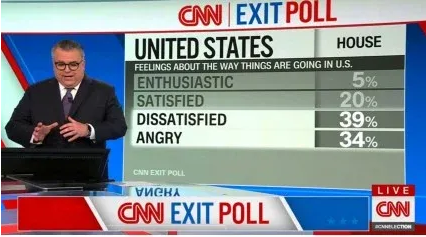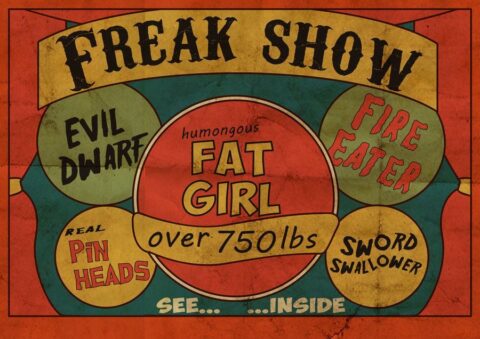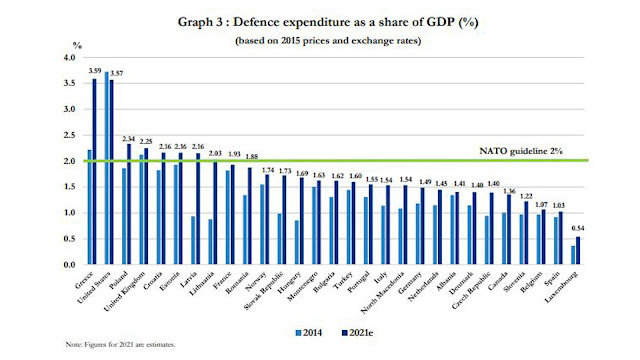The History Guy: History Deserves to Be Remembered
Published 3 May 2021Canadians would distinguish themselves in the Great War, and the words of Canadian John McCrae would come to, perhaps more than any other, encapsulate the sacrifices of the soldiers of that war. The story of one of the most important poems about war ever written deserves to be remembered.
(more…)
November 11, 2022
Canada, the Great War, and Flanders Fields
QotD: WW1 was the first war where the artillery was destructive enough to change the landscape
So why is it always muddy? The real answer is high explosive shells (particularly, but not exclusively, penetrating high explosive shells). Heavy artillery shells in the First World War were made to penetrate into the ground and then explode, sending up a rain of loose dirt – the idea was to be able to destroy or at least bury trenches and deep bunkers. The explosions were so powerful that they uprooted trees and grass, leaving behind the “blasted moonscape” so common in pictures of the Western Front. All that remained were the deep craters which collected water and turned into often fatal mud-traps (Peter Jackson’s They Shall Not Grow Old (2018), includes a horrific description of one man, unable to assist, having to watch another man sucked under the mud to his death in such a crater).
This kind of terrain – with so much of the ground-cover blasted away – would turn into mud-soaked pits the moment it rained – particularly where water collected in the shell-holes.
That also explains why these post-battle scenes often lack any kind of local terrain features. Powerful explosive shells could annihilate terrain features like forests, roads, hedgerows, fences, fields – even hills and entire villages – with extended bombardments. And without any ground-cover left, almost any rain at all will then reduce the local terrain into a mud-soaked bog, especially if the local soil drains poorly (as it did so famously in Flanders).
The problem with depicting medieval, or even early modern battlefields this way is, of course, that these armies do not possess any weapons which can deliver this kind of destruction. Even as late as the American Civil War, field artillery – even massed field artillery – was simply not that powerful (although some heavy naval and siege guns were beginning to come close). Post-battle photography of Gettysburg – even in the approaches to Cemetery Ridge and around the Wheat Field – areas of fierce fighting – shows not only trees and ground-cover, but even fences and buildings largely intact.
Field artillery firing solid shot from 6 to 20lbs to is simply not strong enough to tear apart the terrain in the way that we often see in popular depictions of historical or fantasy battlefields; as pictured above, the guns doing that in WWI were often firing 1,000+ pound shells, 100 times the weight of shot of a normal ACW cannon (lighter artillery, like the famed French 75 (Matériel de 75mm Mle 1897) still fired lighter shells – the French 75 fired a c. 12lbs shell – but still had far more explosive power due to improvements in explosives; that said, the French 75, a capable field gun, was famously too light for ideal use in the trenches). Massed musketry won’t do it either and so massed arrow or crossbow fire, catapults or whatever else certainly won’t.
(This, as a side note, may go some distance to explaining why First World War commanders were so unprepared for the challenges the new terrain they were creating in turn inflicted on them. Doctrine said that the solution to well-entrenched infantry was to mass artillery against them – blast them out of position. It had never been the case before that such massed artillery would render the ground itself impassible, because the artillery had never before been powerful enough to do so.)
Bret Devereaux, “Collection: The Battlefield After the Battle”, A Collection of Unmitigated Pedantry, 2019-10-18.
November 10, 2022
Contemplating the end of brand franchises like Star Wars
Ted Gioia is wondering how Star Wars ends:
Lately, I’ve been wondering how Star Wars ends.
Let me be clear, I’m not worried about how the story resolves, or what happens to the characters. I have zero interest in all that. Darth Vader can win the Nobel Peace Prize, for all I care.
I’m more concerned with how a powerful brand franchise loses its stranglehold on the culture. And it’s not just Star Wars, it’s all those other stories that never achieve closure. I’m talking about Batman and Indiana Jones and James Bond and the Marvel Cinematic Universe (or MCU, for short), and the rest of them.
They all die, sooner or later. But how?
Heroes in capes and colorful costumes seem invincible now, if only because these fictional flâneurs are bigger than anything else in commercial culture. If Spiderman and Batman were real people, they would boast higher incomes and net worth than any flesh-and-blood entertainer in the world. The Marvel Cinematic Universe, which Disney acquired back in 2009, must be worth ten or twenty times the $4 billion they spent back then — total revenues from Marvel brands since then are somewhere around the one trillion dollar mark.
No pop star in history has ever possessed that kind of earning power.
Can these franchises just go on forever? The management team at Disney certainly must hope so, judging by their never-ending slate of Star Wars, Marvel, and other brand extension offerings. No Time to Die isn’t just the name of the 25th James Bond movie, but a promise for the future — why not another 25 films in the series? Or 50 or 100?
But brand franchises do die, or become so tired that few people care anymore. Universal Studios made so much money from Ma and Pa Kettle films that these corny comedies allegedly saved it from bankruptcy in the 1940s, but by 1960 audiences had lost interest in the predictable formulas of the series.
The Carry On films were the most dependable audience draw in British comedy, but after 31 movies the franchise could carry on no longer. A final resuscitation attempt after 14 years not only failed at the box office but was voted the worst British film ever made.
Some franchises not only die, but become genuinely toxic as attitudes evolve — killing, for example, the Charlie Chan franchise, and making it unlikely that Tarzan or the Lone Ranger or many other once lucrative brands will ever enjoy another meaningful payday.
None of this should surprise us, because narratives and protagonists go in and out of fashion like anything else. A story that charmed your grandparents is unlikely to interest your grandchildren.
Installing a “basic” vise is pretty difficult
Rex Krueger
Published 9 Nov 2022A bench needs a vise. Is this the one for you?
(more…)
The headscratcher that was the American midterms outcome
As the voters went to the polls on Tuesday, it was easy to find doom-and-gloom-mongering among Democratic stalwarts and most of the mainstream media (BIRM), and chest-thumping triumphalism on the right. Both sides seemed to agree that the outcome was going to be somewhere between a red landslide and a red wipeout. So … how do we square the expectations of both sides with what actually happened? Chris Bray makes an attempt:
Eight percent uptake of the much-touted bivalent booster, 75% wrong track sentiment, pretty good night for the party in power. Multiple signs of a total loss of trust and respect for the existing order equals a decision to more or less stay the course.
Tribalism is the first explanation, sure. If you shat on a sidewalk and ran it for office with a D behind its name, Democrats would vote for it; if you shat on a sidewalk and ran it for office with an R behind its name, Republicans would vote for it. John Fetterman is headed for the United States Senate. Go ‘way, I’m ‘batin’.
And I agree with the argument that Republicans didn’t offer much of a plan or a vision, a premise you can check by reading Kevin McCarthy’s Commitment to America. More mush from the wimp.
But the other thing, and you can argue with me about this, is that the society of the spectacle madness of messaging without regard to reality actually achieves its purpose, no matter how absurd it is. We have to add $3 trillion in extra debt-funded spending to the economy to reduce inflation! If you vote Republican, they’ll kill our children!
Amazingly, this turns out to work pretty well. The available evidence suggests that we have a sizable population that cannot assess fact claims. I propose that we test this with sample messages to voters: If you vote for bubblegum trees, the sky bees will give you a diamond-crusted ribeye! (Ohh, I have to vote for bubblegum trees!) If you’re out in public, look to your left; then look to your right. At least one of those people thinks Karine Jean-Pierre makes some pretty good points.
Sarah Hoyt strongly believes that the busy midnight vote-finders of 2020 were just as busy on Tuesday night:
As I write this late on the 8th, the tsunami is resolving itself into a wavelet.
Or rather, the tsunami has been overfrauded into a wavelet. And it might be frauded away to a Dem win before I wake tomorrow.
This shouldn’t be a surprise to any of us who were awake and remember this:And we know damn well it was a Trump landslide before that.
So for the Republicans to have picked up any seat, this was the tsunami to end all tsunamis.
I know the usual idiots are out there, already saying “It was abortion: the Womyns came out in force to vote dem.”
Are there women who are single ticket abortion voters. Sure. Most are older than I and are determined to make sure their actions and choices are validated a posteriori. They’re an ever dwindling minority. Married women vote more and more for the right every time. Single women? Who knows? But I suspect there’s been a shift in that too after the last too years. And most of them don’t see that career path ahead they once did.
Then there’s the other bs which is of course “The people don’t want to be free.” That’s bs. The people, every time they can express their displeasure do so. But having the vote taken away from them via fraud means THEY each individual thinks he or she is alone.
Things like “Let’s go Brandon” sweep the nation, but there’s no major legal or financial movement to protest the fraud, because each person thinks “I guess all these idiots are so beaten down they like beaten down, and I’m the only one who is angry.”
Meanwhile the perpetrators know what the people think, and erect barricades in DC to protect themselves from the anger they sense but can’t seem to bring out into the open.
Yes, we’re getting the house, and probably not the senate. Which means a good five/six seats fraud. I’m in a group right now with people crunching numbers, and the fraud is evident. The races the democrats cared out got flipped by turning just those votes for the dems. That’s the flexibility of Dominion at work, and the way they can turn a vote into the other.
At Founding Questions, Severian is appropriately sanguine about the notion of “adjusted” or “fortified” ballot counts in disputed races:
So the “elections” were fun, eh? By far the best “news” from the Dissident perspective is that they did, in fact, pull out all the stops for S-s-s-Strokey. As I think it was Based 5.0 who quipped below, it looks like dual-passport-holding Muslim carny barkers aren’t going to be making America great again. Here’s hoping they’re stupid enough to fall for the “Dr. Jill” trap twice — now they’re stuck with Strokey the way they’re stuck with Tapioca Joe, because Giselle is Dr. Jill on steroids (perhaps literally). Eh, Dr. Jill had 40 years in [Washington, DC] to get a taste of the finer things; Giselle’s price is probably far lower. But until Strokey resigns for health reasons and is replaced […] the image of a tatted-out, brain-damaged hobo in a hoodie shuffling around the Senate floor is so on the nose, no novelist would dare use it.
[…]
I bet if we look back on it, we’ll see the state (lowercase s) Media freaking out first, dragging the Official State (capital S) Media with them. It makes sense, given the perverse incentive structure of the Media. Stick with me here:
Joe Schmoe (D) is running for Congress in Flyover State. Obviously The Media wants him to win, because (D). And they’re sure he’s going to, because his opponent is some “ultra-MAGA” yahoo. But Reality is what it is, and suddenly the yahoo is getting closer and closer …
At that point, The Media’s perverted incentive structure kicks in. The “reporters” at the biggest local rag in Flyover State, the Toad Suck Times-Picayune, only care about one thing: Getting the fuck out of Toad Suck, trading the Times-Picayune for a slot somewhere higher up the chain. Now, there are only two ways to do that: Be a hard-hitting, straight-shooting newshoun …
HAHAHAHAHAHAHAHAHAHAHAHA!! Oh Jesus, I’m sorry, I thought I could type that with a straight face, but I can’t. Give me a minute …
… ok, there’s only one way to move up in The Media, and that’s by proving yourself a more zealous cultist than the next guy. So our Heroic Journalist starts doing what he thinks the Inner Party wants, which is of course “propping up Joe Schmoe for all he’s worth”. But here’s the rub: He’s not privy to what the Inner Party actually wants. Of course he’s not; after all, he’s riding a desk at the Toad Suck Times-Picayune. And of course everybody in a similar position, nationwide, is doing the same thing …
… but they’re all at least kinda sorta privy to the real polls that come down from the big organizations (recall that there are maybe three companies that control all the newspapers in the US), and so he knows things are looking grim for Joe Schmoe. More importantly, he sees that Tapioca Joe himself is out stumping for Democrats, and not in battleground states — they’re putting Brandon out there in supposedly safe Democratic districts.
So our man at the Toad Suck Times-Picayune consults his own personal political tea leaves, and he concludes: We’re gonna lose. The “red wave” is real. So again, he starts doing what he thinks his masters want, the thing he thinks will get him noticed at the higher levels: He admits the truth, or as much as he personally can stomach, and starts laying in the groundwork for #TheResistance, same as in 2020. Oh, Kari Lake is ahead 8% over Abortion Mouse there in AZ (give Ace of Normies this, he coins a good nickname), well obviously that’s because of bigotry MAGA yadda yadda and don’t forget the Russian hacking!
But here’s the problem with that: It does get him noticed by the Big League club, but in the exact opposite way. So long as everyone stays on point, you can brazen it out through the inevitable “fortification”. Had everyone stayed on point, a “worryingly tight race” — they’ll admit that much, for verisimilitude — can easily be turned into one of those 3am miracles the Dems are famous for. Hey, whaddaya know, all the mail in ballots were for Joe Schmoe. What a surprise.
But now that the Toad Suck Times-Picayune is running stories about the challenger being ahead, the Big League clubs have to at least acknowledge it, the school of fish effect takes over, and pretty soon you’ve got the entire Media in panic mode. Which has the further effect of making the freelance riggers even crazier, so that the regularly scheduled 3am ballot drop is being disrupted by mysterious “hiccups” at key locations — you know, “cyberattacks” and whatnot (why the fuck is a voting machine connected to the internet in the first place?), and so on, plus all the mailmen and so forth dumping a whole bunch of ballots from red districts into the nearest streams, culverts, and landfills. Jimmy Hoffa is probably up to his eye sockets in Republican ballots out there in the foundations of Giants’ Stadium…
And so the weird shit we see above, and the odd “had a Narrative all ready” vs. “are clearly scrambling” coverage of different contests.
I can’t think of a better way to really shore up the idea that ALL elections are rigged than that. Wait a minute, the “red wave” was on last week. You guys admitted it. Early Tuesday afternoon, every talking head on tv looked like he was weaving a noose under the “news” desk; you’d expect “journalists” hanging from the rafters by 7pm.
But … ooops! Short of actually being caught on camera throwing Republican ballots in a bonfire, or openly xeroxing Democrat ones — and it’s only mid-morning of the day after, give it time — I can’t think of a clearer way of announcing that it’s ALL rigged than that.
USMC Winchester 70 Sniper – Vietnam Era
Forgotten Weapons
Published 24 Sep 2016This Winchester M70 was a rifle owned by the captain of the Camp Pendleton rifle team, and as such it is an excellent authentic example of the US sniper rifle of the early Vietnam era. It is chambered for the .30-06 cartridge, with a Winchester heavy target barrel and shorter stock. The scope is a 14x Unertl — quite high magnification, considering that the most recent official issue sniper rifle at the time was the M1D with a 2.2x scope. These rifles were used in a quasi-official capacity in Vietnam, and would ultimately evolving into the official M40 and M40A1 sniper rifles.
(more…)
QotD: Sarah’s rules of art
… the botanic gardens were holding a sculpture exhibit, called “human nature” with statues from various times and places.
And why was this a bad idea, Sarah?
Mostly because I’m married to a mathematician. There is a certain … ah … compulsiveness that comes with it. If there’s something that’s numbered and has a route, we OF COURSE have to follow the route and see every single statue, even if that’s not what we set out to do.
This made things very interesting, since the wedding parties were blocking some of the statues, and others we could see from a distance were the sort of modern art that your kids could do with a backyard forge, meaning the actual level of artistry was about the level of a kindergartner, only they used metal instead of playdough.
This leads us to Sarah’s first rule of art: if people viewing it have trouble telling it from accidental formations, it’s probably not art.
The second corollary of this is: if you need an elaborate card pointing out to you that it’s art, it’s probably not art.
The third would be that if you need a placard explaining to you how daring and courageous this art is, and how it defied some tyrannical regime at great peril to the artist’s life, it’s not only not art, you’re in the presence of a self-aggrandizing conman.
Sarah Hoyt, “Art and Revolution”, According to Hoyt, 2019-05-31.
November 9, 2022
The Big Mac’s “peacekeeping magic” is gone
In The Critic, Christopher McCallion illustrates the irrational optimism that countries having McDonald’s restaurants wouldn’t go to war with one another:

“Toledo, McDonald’s, 1967” by DBduo Photography is licensed under CC BY-SA 2.0 .
In 1910, Norman Angell wrote his famous book The Great Illusion, which argued that it would be irrational for the European great powers to go to war with one another when their prosperity was so interconnected by mutual trade and investment. The subsequent outbreak of WWI confirmed for many observers that competition for relative power and security trumped the pacific pursuit of reciprocal gains in wealth.
Following the Cold War, however, the sheer scope and intensity of globalization convinced many that a new era of capitalist peace had arrived. Thomas Friedman famously proposed a “Golden Arches Theory of Conflict Prevention”, which claimed that no two countries with a McDonalds had ever gone to war. There were many propitious augurs for a new era of peace: the lines stretched for blocks when McDonalds first opened in Moscow, and even still-nominally Communist China proclaimed, “to get rich is glorious.”
Simply put, the “capitalist peace theory” says that mutual gains from trade reduce incentives for conflict between economically engaged states, making the prosperity of each dependent on the other and producing high opportunity costs for war.
Realists have long countered this theory by claiming that states prioritize relative gains over absolute gains. State X and State Y may both be made wealthier in absolute terms by trading with one another, but if Y’s wealth grows at a faster pace than X, X may fear that Y’s rapidly growing wealth could be translated into a surplus of military power putting X’s security at risk. Realists contend that states will ultimately prioritize security over all other goals for the simple reason that without security, no other goals can be assured, including the pursuit of prosperity. Realists tend to reverse the logic of interdependence, claiming that low barriers to the cross-border flow of goods and capital are effects, rather than causes, of peace.
It appears that the realists are being proven right. On the eve of the unveiling of the Nordstream-2 pipeline between Russia and Europe, Moscow decided to invade Ukraine, which (literally) blew up the multi-billion-dollar project and all its future returns. Even McDonald’s, the golden harbinger of perpetual peace, shuttered its operations in Russia.
An even more important example is provided in East Asia. The US and China, the two largest economies in the world, are engaged in a rapidly escalating economic, technological, and military rivalry. Not only did the US initiate a trade war against China, it has also launched an increasingly severe series of export restrictions on advanced technology to China, clearly designed to halt China’s economic growth and limit its growing military power. America’s attempts to cut China off at the knees are reminiscent of the measures taken early in the Cold War to contain the Soviet Union and isolate it from the other industrial centers of the world.
Macaroni & Cheese from 1845
Tasting History with Max Miller
Published 8 Nov 2022
(more…)
Liberal political fortunes ride “especially women in the suburbs of the Greater Toronto Area” … and those women are angry right now
In The Line, Ashley Csanady has some advice for Justin Trudeau in the lead-up to the next federal election that he really needs to pay attention to:
Poll after poll has told us the Liberals lost white male voters a long time ago, and their electoral fortunes, especially in Quebec and suburban Ontario, rely on women, especially women in the suburbs of the Greater Toronto Area. This isn’t to say dads and other caregivers aren’t angry. Families take many shapes and anyone with small people at home has faced the same indignities over the past nearly three years. However, politically and demographically, it’s the Ontario moms who are going to make or break the next election. And when folks are angry, it doesn’t matter who the incumbent is, they are wont to vote them out.
Nor is it not just about the children’s pain meds.
It’s about the fact we can’t find antibiotic eye drops over-the-counter either (a shortage one pharmacist told me is even worse than the one for pain and fever meds for the wee ones). Another shortage that means we must then turn to an already over-burdened health-care system to get a prescription for a medicine that may or may not be in stock.
Oh, and if that respiratory virus going around turns nasty, we aren’t even certain there will be a hospital bed for our babies when they need it most.
Then there is the infuriatingly slow roll-out of affordable childcare in this province. Parents once again caught between the feds and the province in a battle that may drag out the process so long that many expecting relief will see their kids off to junior kindergarten before it arrives.
Grocery bills are skyrocketing, and while I admit I’m privileged enough to absorb the eye-popping increases, so many families simply cannot. Imagine telling a picky toddler they can’t have their favourite snack because you can’t afford the crackers.
Now, Ontario moms had to deal with yet another disruption to their kids’ schooling, which threw their work lives into chaos once again. More disruptions are possible should bargaining fail again. This just after many women who left the workforce or took a step back from their careers during the pandemic were just getting back into the swing of things.
I made this point — that Ontario moms are angry and much of that anger is directed at political leaders, but I don’t expect it to fall on Ontario Doug Ford — on Twitter a couple weeks back. For this, I was “reminded” — more like chided — that many of these challenges are Mr. Ford’s fault. Or global challenges no logical person could blame the prime minister for. The partisans in my mentions were right on both counts. But here’s what they got wrong:
It doesn’t matter if I’m being “unfair” to Mr. Trudeau, because politics is unfair.
And as for Mr. Ford’s share of the blame, voters punish who’s up next at the ballot box, especially in a crisis. They had a chance to take out their rage on the PCs in June. They didn’t. So who does that leave up next?
How-to Eat Like a Marine in the Field
Munchies
Published 11 Jul 2018Lieutenant Glenn-Roundtree shows us how to make his ideal MRE (Meal, Ready-to-Eat), which includes a beef ravioli taco and cherry blueberry cobbler.
(more…)
QotD: Was Temujin (aka Genghis Khan/Chinggis Khan) a “great man”?
Take, for instance, Chinggis Khan (born Temujin; I am going to use Temujin here to mean the man himself and Chinggis Khan to mean his impact as a ruler once the Mongols were fully united). The conditions for Chinggis Khan were not new in 1158; the basic technological factors with made the Steppe way of war possible had existed in the Eurasian Steppe for at least two thousand years by the time Temujin was born. Political fragmentation was also an important factor, but this was hardly the first time that nearby China had been politically fragmented (at the very least the periods 771-221BC, 220-280AD, 304-589 and 907 through to Temujin’s birth in 1158 all qualify) and the steppe had effectively always been politically fragmented. Our evidence for life on the steppe is limited (we’ll come back to this in a second) but by all appearances the key social institutions Temujin either relied on or dismantled were all centuries old at least at his birth.
What had been missing for all that time was Temujin. To buy into the strongest form of “cliodynamics” is to assume that the Steppe always would have produced a Temujin (in part because his impact is so massive that a “general law” of history which cannot predict an event of such titanic import is not actually a functional “general law”). And to be fair, it had produced nearly Temujins before: Attila, Seljuk, etc. But “nearly” here isn’t good enough because so many of the impacts of Chinggis Khan depend on the completeness of his conquests, on a single state interested in trade controlling the entire Eurasian Steppe without meaningful exception. The difference between Temujin and almost-Temujin (which is just basically “Jamukha”) is history-shatteringly tremendous, given that both gunpowder and the Black Death seem to have moved west on the roads that Chinggis opened and the subsequent closure of those routes after his empire fragmented seem to have been a major impetus towards European seaborne expansion.
Moreover, it is not at all clear that, absent Temujin in that particular moment – keeping in mind that Temujin hadn’t appeared in any other moment – that there would have inevitably risen a different Temujin sometime later. After all, for two millennia the steppe had not produced a Temujin and by 1158, the technological window for it to do so was already beginning to close as humans in the agrarian parts of the world (read: China) had already begun harnessing chemical energy in ways that would eventually come to rob the nomad of much of his strength. If Temujin dies as a boy – as he very well might have! – it is not at all clear he’d be replaced before that window closed; his most obvious near peer was Jamukha, but here personalities matter: Jamukha was committed to the old Mongol social hierarchy (this was part of why he and Temujin fell out) and was so unwilling to do the very things that made Chinggis Khan’s great success possible (obliterating clan distinctions and promoting based on merit rather than family pedigree). Jamukha could have been another Seljuk, but he could not have been another Chinggis Khan and in this case that would make all of the difference.
To get briefly into a bit of historical theory, Chinggis is an individual whose actions in life fundamentally altered many of what the “Annales School” of history would call the structures and mentalités of his (and subsequent) times. The Annales school likes to view history through a long duration lens (longue durée) and focus on big shaping structures like climate, geography, culture and so on. The difference between this and cliodynamics is that Annales thinkers propose to describe rather than predict, so it is not fatal to their method if there are occasional, sudden, unpredictable alterations to those underlying structures – indeed those are the moments which are most interesting. But it is fatal to a cliodynamics perspective, which does aim for prediction since “our prediction is absolutely right unless it is completely wrong” hardly inspires confidence and a “general law” of anything is only a “general law” in that it is generally applicable not merely to the past but also to the future.
In short, Chinggis Khan wasn’t a commodity; he couldn’t be replaced by any other Mongol warrior. And figures like that abound through history (for Roman history, it matters greatly for instance that Marius, Sulla, Pompey, Caesar and Octavian had very different personalities when they found themselves in a position to dominate the Republic with military force). Moreover, the figures like that who we think of, generally capital-g “Great Men”, are hardly the only such individuals like that. They’re only the ones we can see. What of, for instance, the old Argive mother – her name lost to history – who killed Pyrrhus of Epirus, considered the greatest general of his generation, with a lucky throw of a roofing tile, both ending his career but also setting in motion a chain of events where the power vacuum left by Epirus would be filled by Carthage and Rome in a way that would bring those former allies (allied against Pyrrhus, in fact) into a shattering conflict which would then pave the way for Roman dominance in the Mediterranean? History must be full of innumerable such figures whose actions created and closed off courses of events in ways we can never know; how do we know that there wasn’t some would-have-been Temujin on the steppe in 100AD but who was killed in some minor dispute so very minor it leaves literally no evidence behind?
(The fancy way of putting the influence of all of those factors, both the big structural ones and the little, subject-to-chance ones, is to say “history is contingent” – that is, the outcomes are not inevitable but are subject to many forces large and small, many of which the lack of evidence render historically invisible.)
Bret Devereaux, “Fireside Friday: October 15, 2021”, A Collection of Unmitigated Pedantry, 2021-10-15.
November 8, 2022
The inevitable next act of the media subsidy game – “Before long we will be back for more”
In The Line, Peter Menzies outlines the state of play in the continued efforts of the federal government to pass C-18, a bill that will massively benefit certain media outlets … or convince the “tech giants” to pull out of the Canadian market altogether rather than pay the blackmail:
News Media Canada’s persistent campaigning finally produced its Holy Grail — Bill C-18. All might have been well for Torstar, Postmedia and Le Devoir except that once the flesh was thrown on the bones of the Act, broadcasters that aren’t facing economic peril heard the dinner bell and came running.
The result, according to the Parliamentary Budget Officer, is that Bill C-18 is expected to produce $329 million in annual revenue for Canadian media (for context, that’s less than the Calgary Herald, Edmonton Journal, Edmonton Sun and Calgary Sun were bringing in between them 20 years ago). Of that, $249 million will go to broadcasters, few of whom are on a fiscal ledge and a good many of whom have contributed to the demise of local newspapers. Remarkably, the CBC, already receiving $1 billion in taxpayer funding, will get the most of that cash, followed by CTV (Bell), Rogers, Videotron and others. The newspapers and start ups will have $80 million (a little more than what the Edmonton Journal and Edmonton Sun used to make in combined annual profit) to fight over.
And very few of those previously mentioned startups — run by mostly young and often female innovators — trying to find a sustainable business model for good journalism can expect anything more than a token pay off. No. They will have to go to the little kids table and see what they can find on the children’s menu of subsidies.
It is distressingly obvious that while so many were tricked into believing this was the most progressive Canadian government ever, it is in fact, a slave to the status quo; as staunch a defender of the corporate establishment as the Toronto Club could wish for. With the 21st century and all its opportunities staring it in the face, Justin Trudeau’s government has not only turned its back on innovation, it has put its thumb on the scale in favour of failed business models that long ago ran out of ideas.
Yet there may be a final twist in this tale.
Bill C-18’s particulars are, as Meta/Facebook’s Kevin Chan put it to a Parliamentary committee last week “globally unprecedented”. For all its sins — and for all we know there are a few more skeletons rattling around in its closet — Meta is unlikely to pay up. Sure, it can cover the Canadian shakedown; what it can’t afford though is to pay every other country in the world that makes the same demand. So Meta says it may simply stop serving up news links which, when you think about it, is a better idea in the long run than permanently entrenching its dominant market position
So while the publishers of those blank pages appear to have bullied even the Conservatives into supporting this travesty, they are still left to ponder:
“Imagine if Facebook wasn’t there.”
“Just Stop Oil” and other nihilistic doomsday cults
In Spiked, Tom Slater says we have to accurately label groups like the Extinction Rebellion spin-off “Just Stop Oil” rather than giving them the rather anodyne label of “protest groups”:
We need to stop calling Just Stop Oil a protest group. Protesters is far too positive a word to describe this strange assemblage of middle-class agitators, with their cut-glass accents and self-parodying bohemian names (shouts out to Indigo Rumbelow), who have been gluing themselves to roads and throwing soup at great works of art in an attempt to end oil and gas production. This thing is a doomsday cult, masquerading as a political campaign. There’s really no denying it any longer.
Take the case of that 24-year-old woman who climbed up one of the gantries over the M25 this morning, in order to bring all the ignorant, carbon-spewing plebs to a standstill. She posted an unnerving video online. In it, she is fighting back tears. She gives vent to a seemingly sincere apocalyptic terror. “I’m here because I don’t have a future!”, she says, in between sobs. She accuses the government of murder, of fuelling a “climate crisis” she seems to be convinced is killing millions, for having the temerity to exploit oil and gas to keep the UK’s lights on.
That what she’s saying is alarmist nonsense should be obvious to anyone. The truth is almost the inverse of what she is saying. Thanks to economic development, fuelled by cheap and reliable energy, annual deaths worldwide from climate-related disasters have plunged by more than 95 per cent over the past century. She also implies that the floods in Pakistan are the fault of fossil fuels, even though those feted IPCC reports say there is insufficient evidence to show that climate change is making floods more frequent, lengthy or intense. What would be considerably more murderous would be for our government to shun reliable oil and gas supplies as the nation’s pensioners head into a harsh winter, amid sky-high energy prices and talk of blackouts.
Such blithe disregard for the details reminds us that these people don’t really care about climate change. They’re hysterical about climate change. They’re apocalyptic about climate change. They aren’t taking to the streets, motorways and art galleries because they are convinced of a particular scientific view with regards to the environment and think something really ought to be done about it. They are in the grip of a fact-lite and doom-laden narrative that insists literally billions will die in short order, that the twentysomethings of today might not live to see their dotage, because of our damnable desire to live comfortable and free lives.
All of this is why environmental protest – with Just Stop Oil and the various other Extinction Rebellion offshoots to the fore – has become so much weirder in recent years. And that’s saying something. Beyond all the crying and talk of having no future, there’s also the setting of arms on fire, the pouring of human shit over memorials to Captain Sir Tom Moore, the throwing of soup over great works of art … it’s all become rather visceral, iconoclastic, scatological. In a word, it’s all become rather creepy. These are the acts not of future-oriented protesters keen to shape and change the world, but of cultists convinced that doomsday is almost upon us.
As someone else pointed out recently, there’s more than a bit of a resemblance between the kind of actions taken by protest groups like “Just Stop Oil” and the tantrums of very small children.
Freeland to NATO? Almost certainly not
CDR Salamander explains why, despite her having good qualities that match some of what the job requires, we shouldn’t be betting any money on Deputy PM Chrystia Freeland taking over the role of Secretary General of NATO:

Screencap from a CPAC video of Chrystia Freeland’s speech at the Brookings Institution in October, 2022.
So, via NYT, as a war wages in Eastern Europe and NATO is looking for a new Secretary General, what is the focus?
The behind-the-scenes jockeying for who should succeed Jens Stoltenberg has begun in earnest, with a focus on women.
Here’s the CV:
While the officials cautioned that these are early days, and very often the names that surface first do not survive the bargaining among NATO’s 30 members, they said one prime candidate has surfaced in Washington: Chrystia Freeland, 54, the Canadian-Ukrainian deputy prime minister and finance minister of Canada.
Ms. Freeland, 54, a former journalist (who is married to a reporter for The New York Times), has also been Canada’s foreign minister. Her advantages are considerable: she speaks English, French, Italian, Ukrainian and Russian; she has run complicated ministries; she is good at news conferences and other public appearances; and she would be the first woman and first Canadian ever to run NATO.
The fact that word is on the street that the primary filter here is if someone is XX vs XY would be laughable if not so destructive. There is absolutely nothing wrong with a woman being Secretary General, but that should have nothing to do with the decision. The fact is leading with that as the first criteria, any woman selected as Secretary General this round, would — rightly — always have a shadow over them for this simple fact that they did not get the position on merit — but simply an attempt to signal virtue to … well … fellow members of the woke left in the West, I guess. NATO’s potential enemies will only be encouraged by such an act.
This does nothing for NATO or women — and it degrades both by the process.
That being said, as her name is being floated, let’s look at Freeland. Many US citizens may recognize her from her very undiplomatic interactions with the Trump Administration. It wasn’t just Trump, but something worse that seeps out. Even during the Biden Administration, her not-so-subtle sniffs of standard issue leftist Canadian anti-Americanism crops up on a regular basis. It only gets worse when she deals with Americans to the right of Bernie Sanders.
In NATO, you need someone who is a subtle politician — again with experience working in a vigorous multi-party coalition with highly different views, priorities, and goals. That is why Europeans make such good Secretary Generals. While Canada also has a parliamentary system, it and its parties are VERY different than the European model. Freeland only gets partial credit here.
There is also the issue of temperament. Read the links above. Freeland likes to pick fights, often in public. Worse, she seems to enjoy — again as most standard-issue Canadian leftists do — in making snide comments about the government and people of the alliance’s largest monetary and troop contributing nation — the United States of America.
The Secretary General of NATO has to be someone by temperament and habit seen as a non-partisan person toward the USA so that they can work with American administrations from all political parties. Freeland has significant issues with the American Republican Party in general and American conservatives in particular. That alone should be enough for serious alliance nations from Poland to Great Britain to be against her as a possible candidate. In summary; Freeland does not possess the skills or temperament for the position.
Now is not the time for such frivolity.
The last reason — and the most important reason for me — that Freeland should not be the Secretary General will be recognizable to regular readers here. It has nothing to do with her as a person, but her nation, Canada.
I love Canada and Canadians — but this is not personal, this is business. Serious alliance business. Simply by the numbers, Canada has not earned the position.
Review my post from September if needed, but Canada spends ~1.3% of her GDP on defense. This is WELL below NATO’s 2% minimum. Only Slovenia, Belgium, Spain and Luxembourg spend less.
We are well past being polite to alliance members who refuse to pull their fair share of the burden. Canada simply has not put herself in the position to reward any of her political elite with the position of Secretary General, man or woman.












